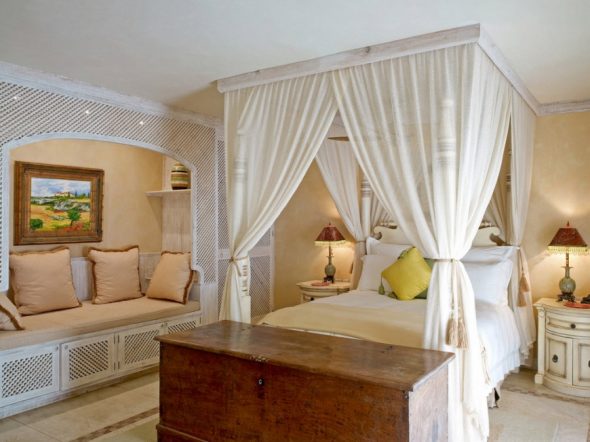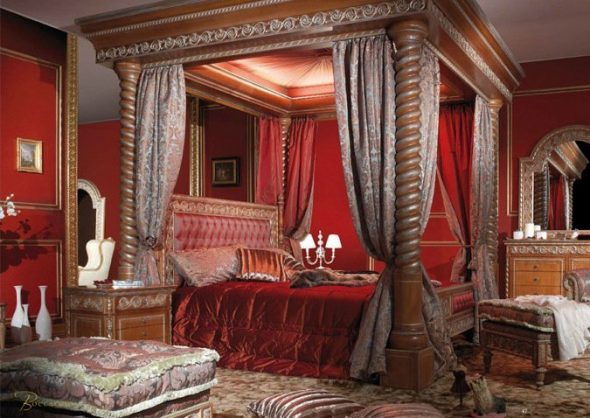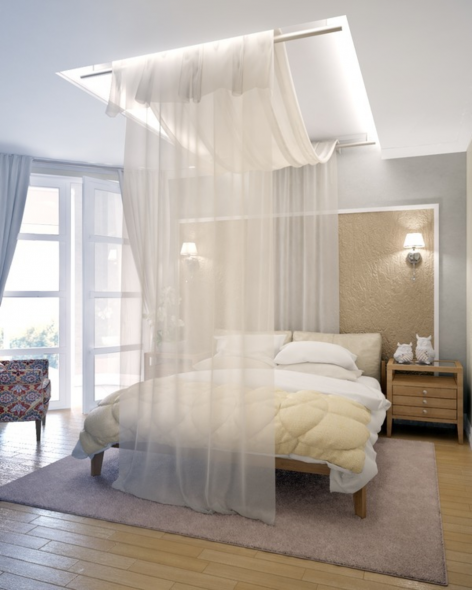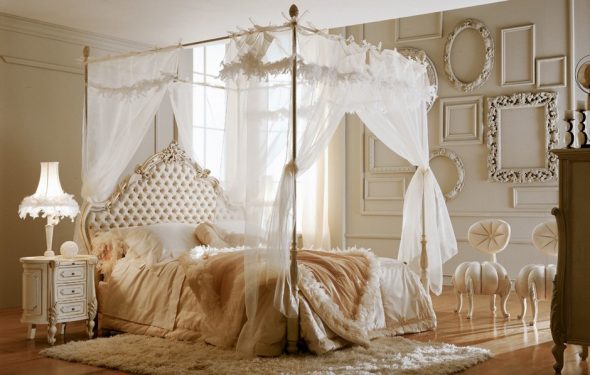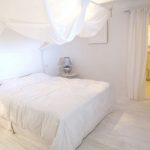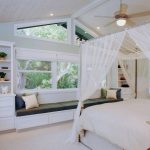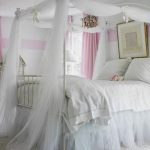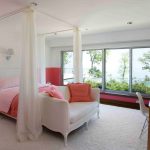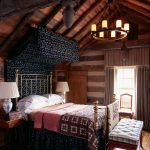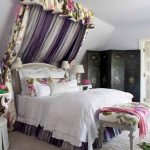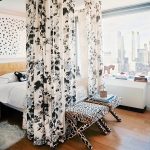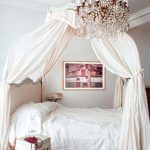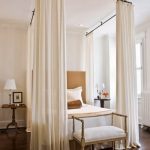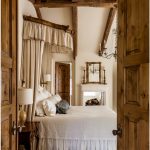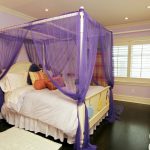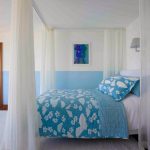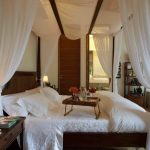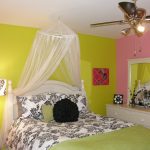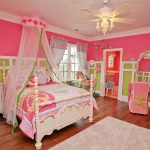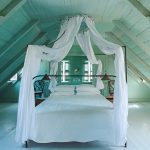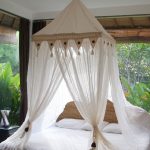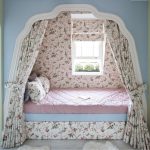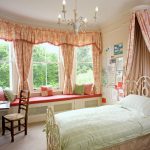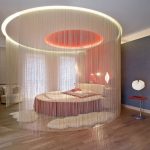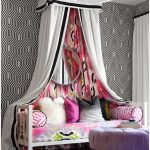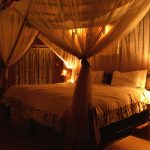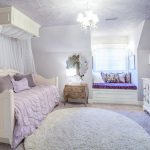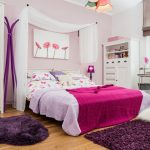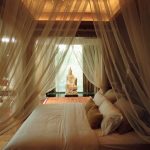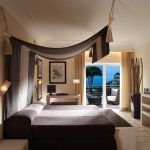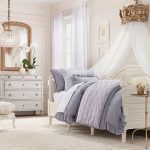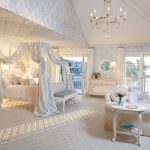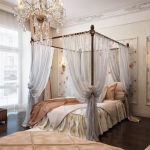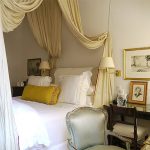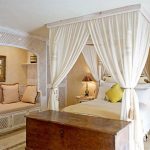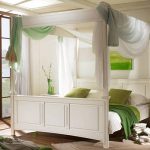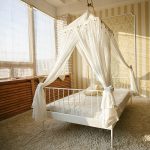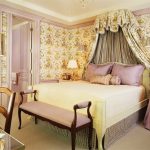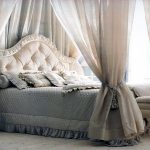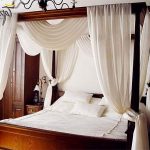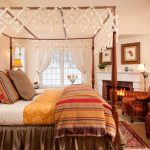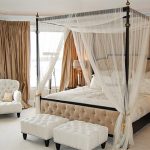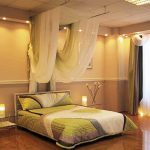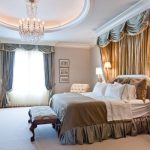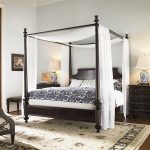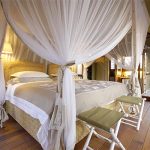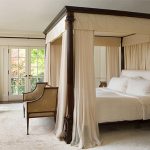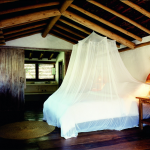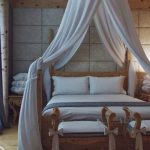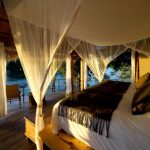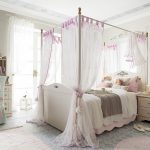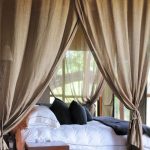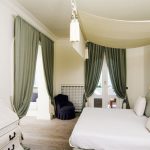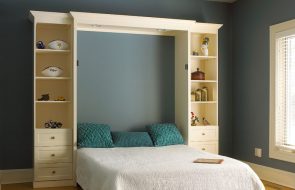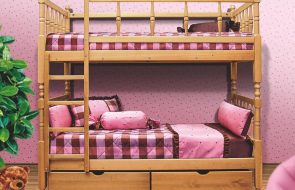Modern room design can combine elements of different styles - Scandinavian, Provence, Eastern and other trends. The design goes so far that the most unusual solutions appear in the interior. We are talking about canopies, which make the room more comfortable and rest more pleasant.
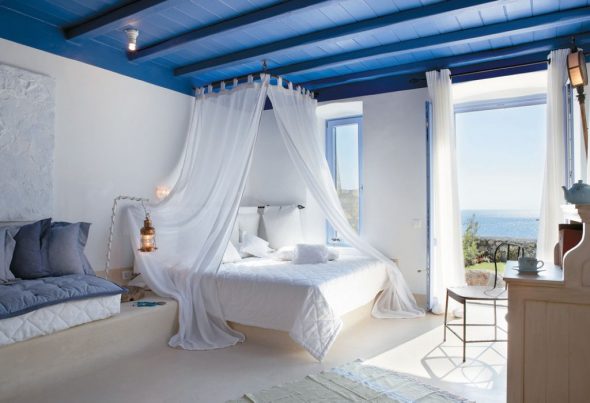
Content
- What shape and design to choose?
- Canopy fabric
- Selecting a frame
- Frame material and shape
- Options for attaching the canopy to the frame
- Benefits of a canopy
- Disadvantages of a canopy
- Canopy for children's room
- Brief summary master class
- Manufacturing process
- VIDEO: Beautiful canopies for the bedroom. Design options.
- Canopies over the bed in the interior - 50 photo ideas:
What shape and design to choose?
Having decided to make a canopy in your bedroom, you should remember that this interior element requires care in the form of washing and ironing. Therefore, you need to think about what kind of fastening design you need to choose for practicality, so that you can easily remove it.
For different interiors, only three main types of canopy shapes are most often used:
- Semicircle;
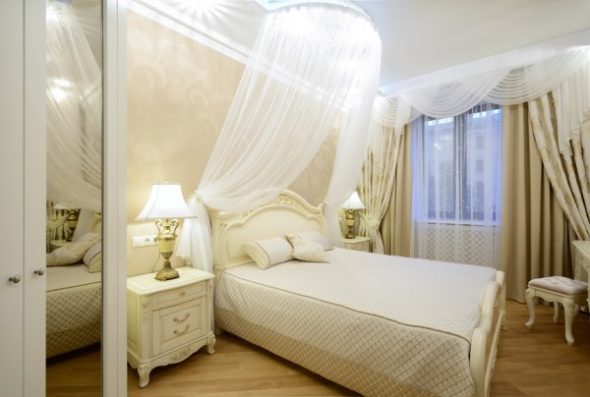
- Dome;
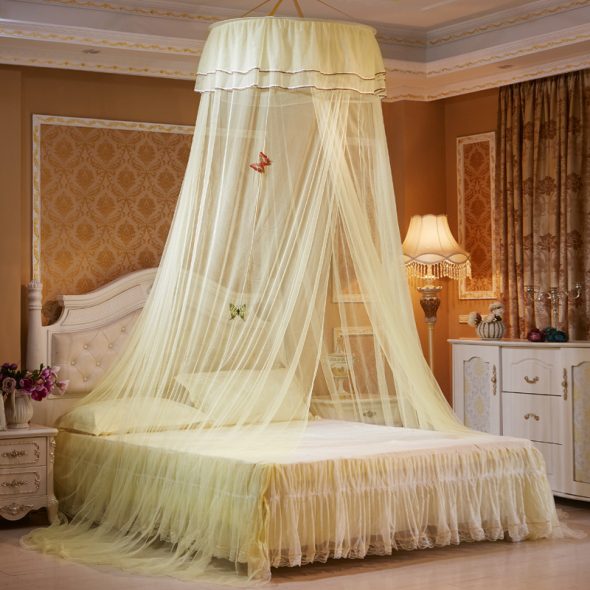
- Classic.
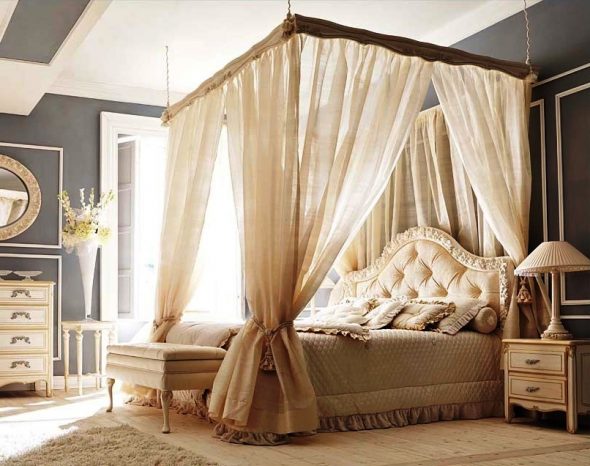
The traditional version of decorating a canopy bed in the bedroom is the classic one. Initially, supports are installed on the bed, to which the fabric is then attached.
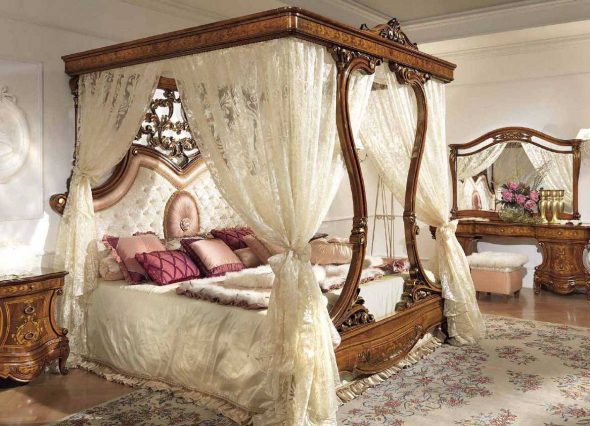
Dome — A suspended structure that is attached to the ceiling with a bracket, has a variety of shapes, and the fabric is laid in such a way that a dome-shaped canopy is created.
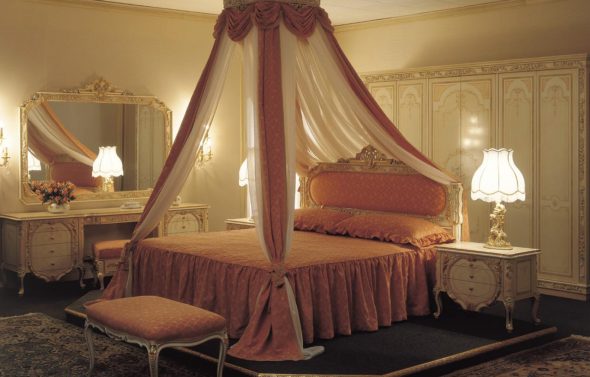
The semicircle is attached to the wall and has an arched frame. There may be variations in shapes.
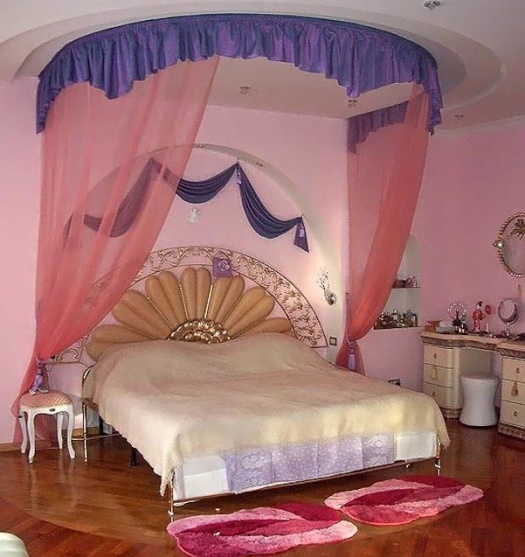
All of these shapes can be used depending on the overall design of the room and where exactly the sleeping area will be located. The design can be either simple or complex.
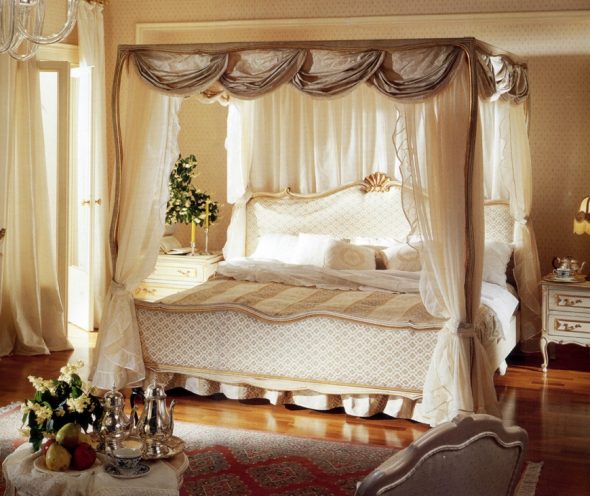
Canopy fabric
This nuance is very important when choosing if you want to make a canopy over your bed with your own hands. Light airy or aristocratic heavy fabric can cause a different aesthetic effect and affect functionality.
- Lightweight fabrics. More suitable for use in the bedroom. This option allows air to pass through freely, and minimally absorbs dust and other contaminants.
These include veils, organza, and chiffon. - Heavy fabrics. They are used to protect the sleeping area from light and noise. But hanging elements collect a lot of dust, which often attracts dust mites, such fabric does not allow enough oxygen to pass through for a full healthy rest. Representatives of this category of materials are jacquard, velvet, tapestry. Depending on the style, canopies are decorated with tassels, fringe, flounces.
In addition to texture and density, a color is also chosen that best suits the design of the room.
Selecting a frame
Once you have decided on the shape, you can begin choosing the foundation to bring your idea into reality.
– The classic form of canopy placement implies the presence of a system of racks and rods that are attached to the bed itself. Sometimes a simplified classic version of canopy placement is used – cables or ropes that are attached to the ceiling along the perimeter.
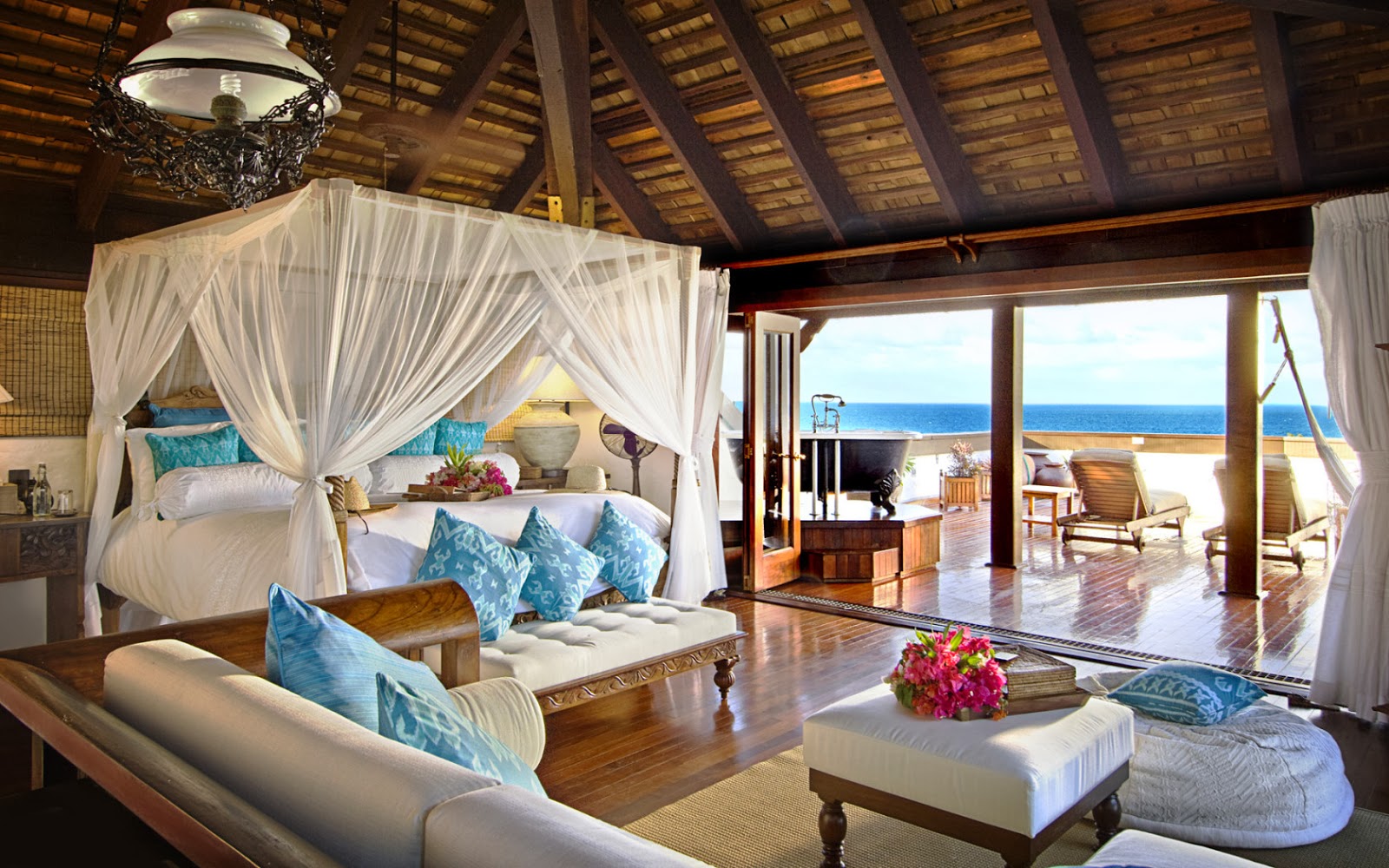
– The arched shape requires a base that has places for wall mounting. A pipe mount with one end attached to the wall can also be used.
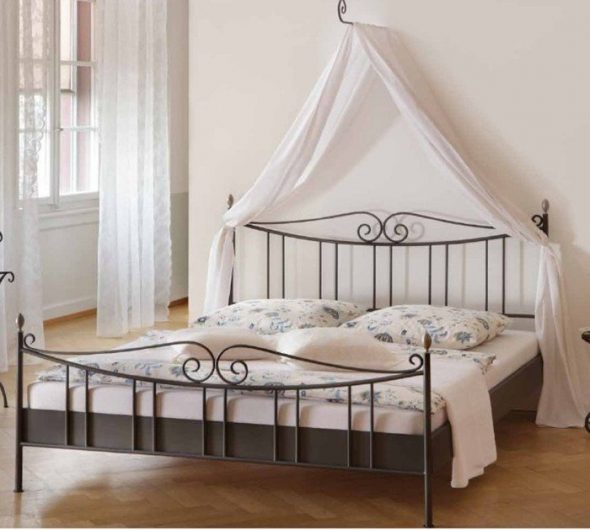
– The dome shape can be achieved with a crown base (a ring-shaped fastening that is attached to the ceiling). You can also use a canopy bracket, which is often used for children's beds.
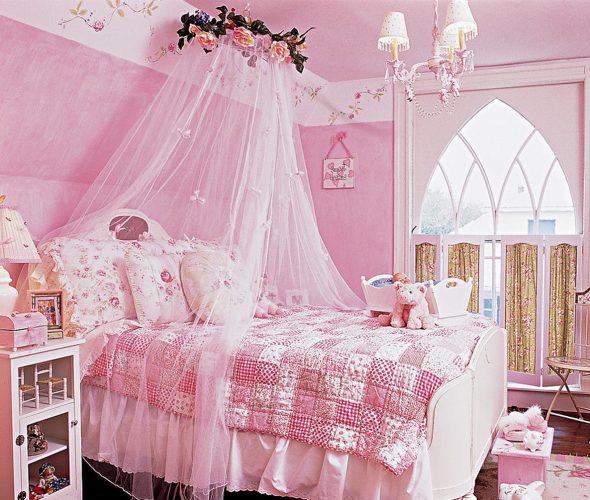
Frame material and shape
The frame can be made of different materials. What options can you use for your home?
| Profile cornice | Metal tube | Wooden, plastic, metal supports | Crown shape | Semicircular (arc-shaped) shape |
| Can be used instead of the classic version, which is attached to the bed. The cornice is attached to the ceiling along the perimeter of the bed. | It is similar in style of fastening to the ceiling. Dowels and hangers are used. | Made from different materials depending on the bed itself to which they are attached. They can also have a difference in material. For example, the bed is wooden, and the supports are made of plastic. | It is usually made of plastic, but a wooden form is also often found. A homemade version is also possible - a large-diameter hoop or bent thick wire can be an excellent option. | It can be made from an aluminum tube laminated in the desired color. You can also bend the tube yourself to the desired diameter. The blank can be found in any hardware store. |
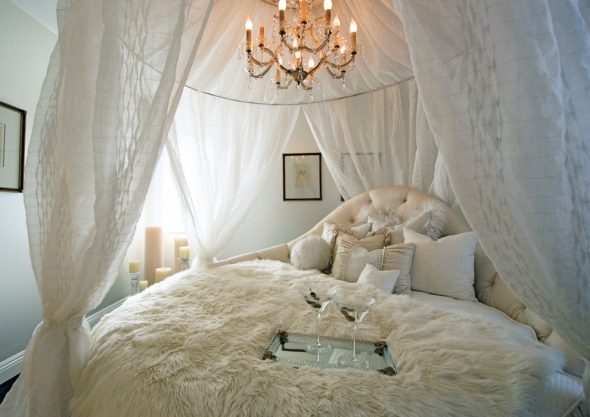
You can simply buy a ready-made frame with all the fasteners and all that remains is to assemble the structure.
Options for attaching the canopy to the frame
There are many options here, you can choose them based on the complexity of the work and ease of use.Since the base can be different, different techniques can be chosen for fastening.
- Loops.
Wide strips that can be sewn on both edges or with Velcro. The latter option is easy to attach for maintenance (washing, ironing).
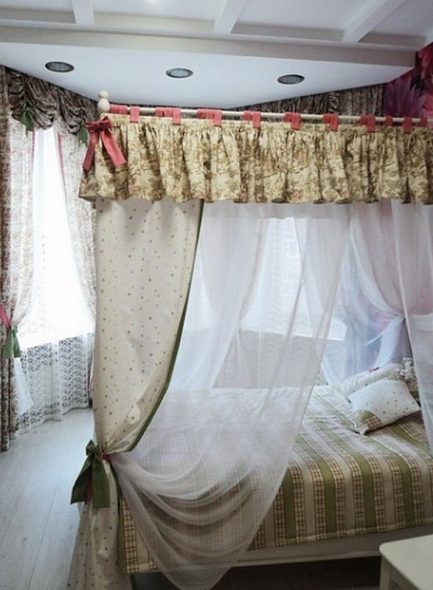
- Eyelets.
They are riveted metal rings on fabric with a certain indentation from the edge. They are often used for medium and heavy-weight fabrics.
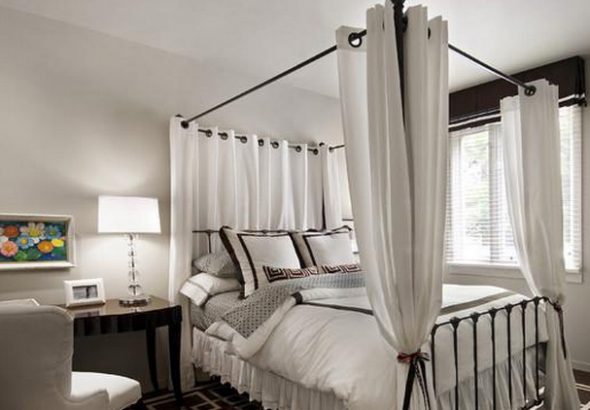
- Corrugated tape.
The tape with loops is sewn to the edge of the fabric. At the same time, a system with hooks must be created on the base. The loops of the tape are put on the hooks.
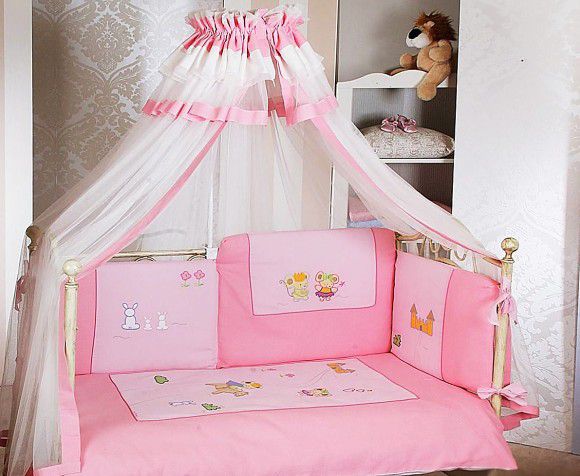
Benefits of a canopy
Despite the fact that the canopy is a rather fashionable piece of furniture, it can not only perform decorative functions, but also serve as a useful addition to the bed.
- Depending on the shape of the canopy, it performs mosquito functions. It should be made of transparent airy materials of the product.
- If the canopy is made of thick fabric, it protects from excess light, especially in the morning.
- Creating a cozy and private space.
- Design solution for conditional zoning.
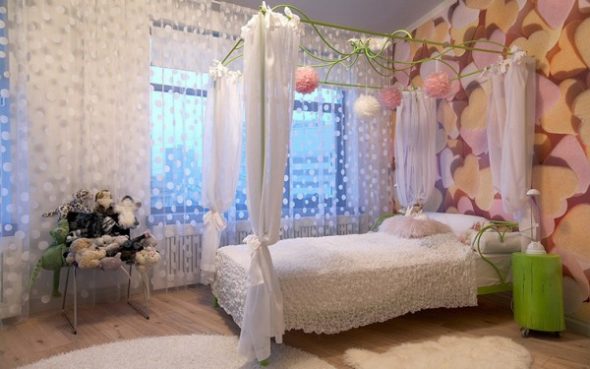
Although the canopy performs useful functions, it also has a number of disadvantages.
Disadvantages of a canopy
Designers refuse to use canopies in the interior in the following cases.
- Extra "dust collector". Dust is a breeding ground for dust mites, which cause allergic reactions.
- Maintenance hassle. Frequent maintenance in the form of wiping dust from fasteners and washing fabric will seem impractical to many.
- Visual reduction of space. Such decor is not suitable for small rooms.
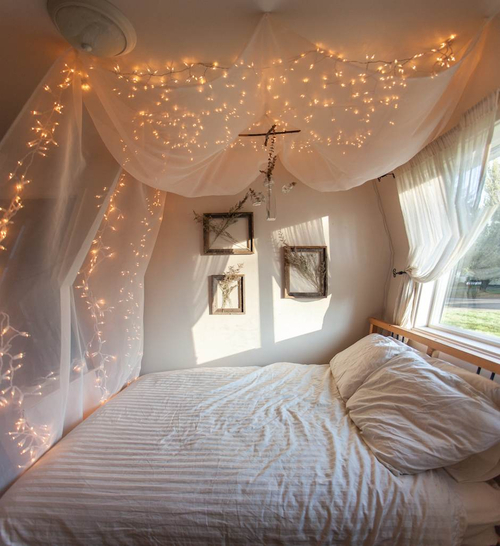
Canopy for children's room
You can use it from the moment the child is born until he/she reaches a certain age. If the child is allergic, then a canopy in the children's room is not desirable.
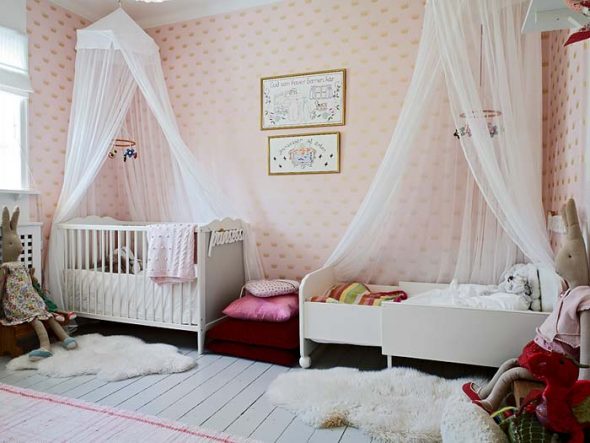
For a newborn
When buying a baby cot, parents also buy a set of textiles, which are then attached to it. These are protective sides, a sheet and a canopy.
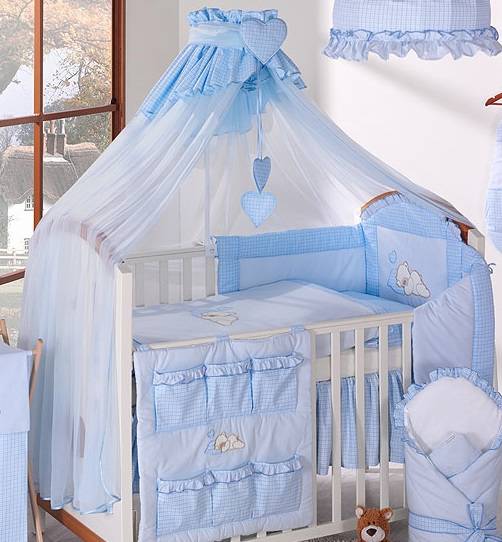
They are attached to a crib or playpen with a bracket that has a ring on it. Externally, it looks like a "crown", only it is attached to the base rather than to the ceiling. It can be used for both boys and girls.
For preschool and primary school age
Canopies are mostly loved by girls. They fit perfectly into the interior of a little princess. They come in different forms. The choice of color should be approached responsibly. Those that do not stimulate the nervous system (pastel colors) are chosen.
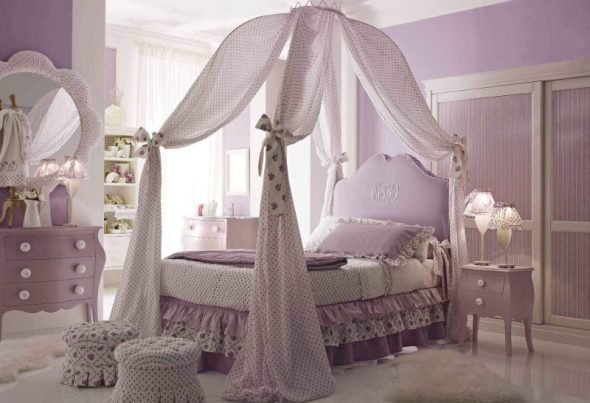
Brief summary master class
It is possible to "reward" a bed with a canopy with your own hands, but you need to follow clear instructions. First, you need to get the following tools:
- Tape measure (for measuring distances on the mounting surface);
- Drill/driver (for creating mounting holes);
- Pencil (to mark the boundaries of the work, drilling locations);
- Dowels, anchors with hooks (fasteners).
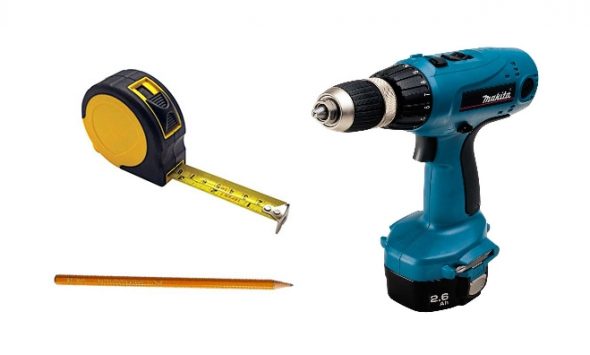
Manufacturing process
- Mark the place where the canopy will be attached (ceiling, wall).
- Select the shape of the base. If possible, make it yourself from the selected material, depending on the design.
- Attach the base to the desired location.
For a massive, bulky bed, a canopy needs to be lush and heavy; for a light and laconic bed, a light and translucent canopy is best suited. - Select fabric. Measure the width and length of the material needed for all sections.
- Process the edges, decide on the fastening and make loops, eyelets or braid.
- Hang a canopy.
It’s easy to do all this, and everyone can feel like a designer and choose the necessary color, fabric and design for the canopy.

